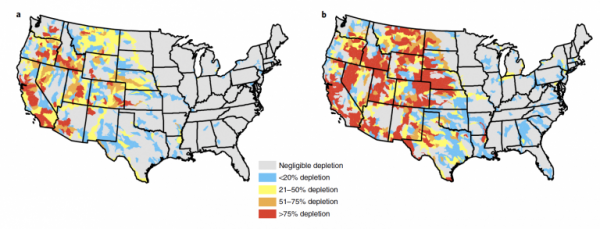
An important new study published this week in Nature Sustainability finds that irrigated crop production accounts for 86 percent of all water consumed in the western U.S.—and of all the water used on western farms, by far the largest portion goes to cattle-feed crops such as alfalfa and grass hay. To alleviate the severe shortage of water in the region—especially in the Colorado River basin—the study’s authors suggest that rotational fallowing farmland, leaving the land uncultivated for a period of time, could be a simple and affordable means of dramatically reducing water use in the region.
Study co-author and principal investigator Ben Ruddell, who is director of Northern Arizona University’s School of Informatics, Computing, and Cyber Systems, leads the FEWSION project, a multi-institutional team effort launched in 2016 and funded through the National Science Foundation (NSF), to assess the nation’s food, energy and water systems. Read more.